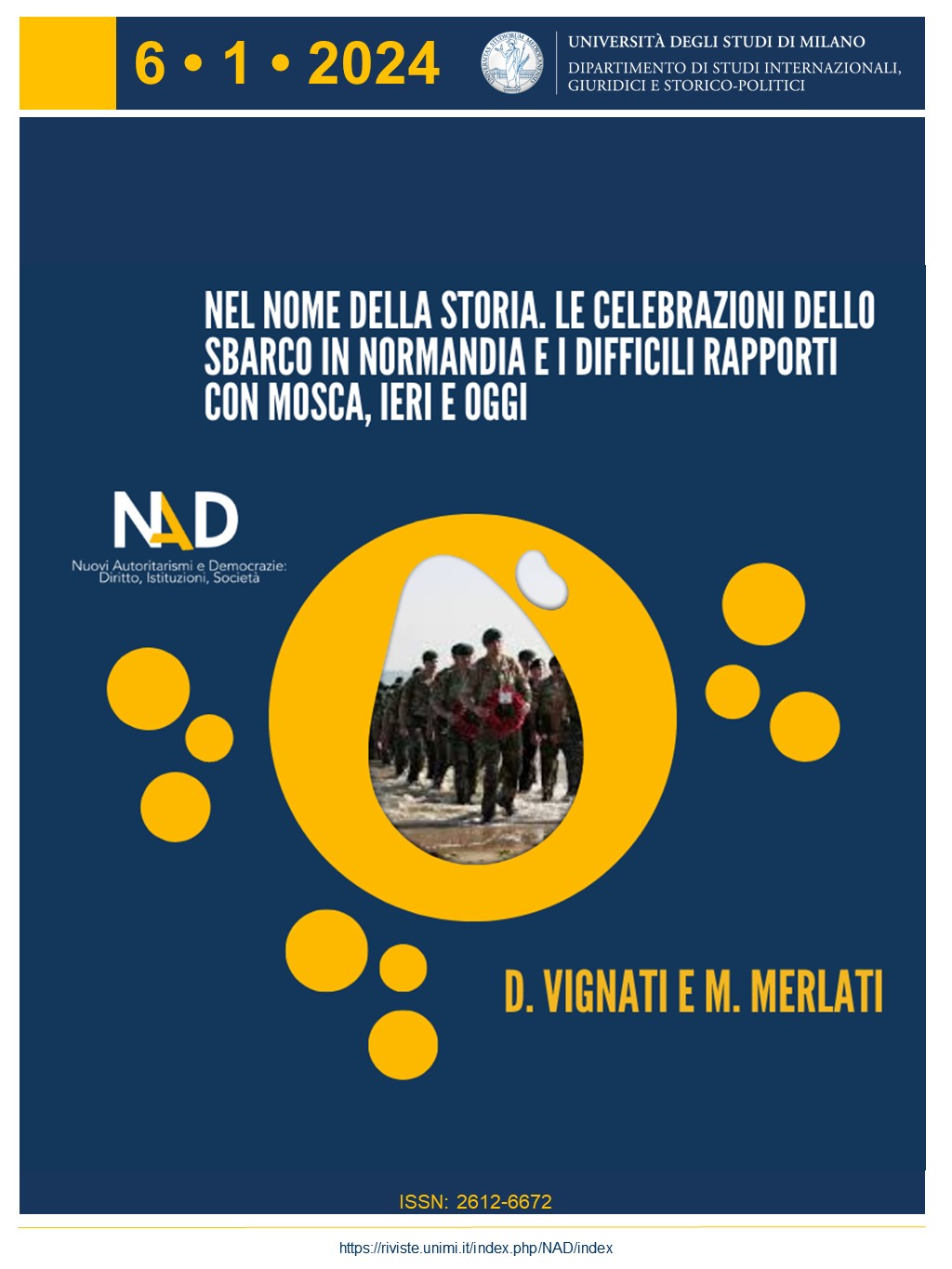In the Name of History? Normandy Landings Celebrations and the Troubled Relations with Moscow, Yesterday and Today
DOI:
https://doi.org/10.54103/2612-6672/23967Keywords:
Russia, Grand Alliance, Normandy Landings, France, Ukraine WarAbstract
When Allied troops landed on the shores of Normandy at dawn, on the morning of June 6, 1944, the Liberation of Europe from Nazism began. Yet, the defeat of Hitler’s Germany came at a major cost for the so-called Grand Alliance. During the endless months that followed Nazi Germany’s attack against the Soviet Union, the question of the Second Front was a constant source of lasting resentment and growing mistrust on the part of Stalin towards Roosevelt and Churchill. Eighty years later, as D-Day celebrations approach, tensions stemming from Russia’s war against Ukraine cast shadows on them.
References
Costigliola Frank, Roosevelt’s Lost Alliances. How Personal Politics Helped Start the Cold War. Course Book, Princeton University Press, 2012 DOI: https://doi.org/10.1515/9781400839520
Feis Herbert, Churchill-Roosevelt-Stalin : The War They Waged and the Peace They Sought. Second edition, Princeton University Press, 2015
Fenby Jonathan, Alliance : The Inside Story of How Roosevelt, Stalin, and Churchill Won One War and Began Another, Simon & Schuster, 2006
Miner Steven Merritt, Between Churchill and Stalin : The Soviet Union, Great Britain and the Origins of the Grand Alliance, The University of North Carolina Press, 1988
Overy Richard, The Oxford History of World War II, Oxford University Press, 2023 DOI: https://doi.org/10.1093/oso/9780192884084.001.0001

Downloads
Published
How to Cite
Issue
Section
License
Copyright (c) 2024 Daniela Vignati , Mariele Merlati

This work is licensed under a Creative Commons Attribution-NonCommercial-NoDerivatives 4.0 International License.









